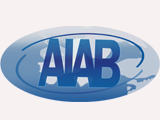SERVICES
Certifications
ISO 22000:Food Safety System
ISO 22000Food safety is a global concern. Public health issues can significantly impact on trade. Legislation, in most countries, requires proprietors of food companies to implement HACCP principles into food production systems. A management system based on HACCP principles allows organizations to identify, document, maintain and review food hazards that occur during the food production process.
The International Organization for Standardization (ISO) 22000:2005 Standard:Requirements for a Food Safety Management System demonstrates an organization’s commitment to food safety, and provides a means to demonstrate that an organization is taking the necessary steps to control food safety hazards. .
The standard has three parts:
- Good manufacturing practices (GMP) or pre-requisite programs requirements
- HACCP principles
- Management system requirements
ISO 22001:2005: applies to all organizations, regardless of their size, that impact the food chain. This includes ingredient suppliers, equipment manufacturers, package suppliers, service providers, farmers, food processors, and catering and retailing organizations.
Benifits
- Allows organization within the food chain to demonstrate their commitment to food safety.
- Improved internal and external communication.
- Ability to show control of known food hazards
- Continuous improvement of an organization's food safety management system.
- Use of the internationally recognized NSF certification mark.
- Enables an organization to align its food safety management system with other recognized management systems such as quality (ISO 9001) and environmental (ISO 14001)
HACCP
Hazard Analysis and Critical Control Point (HACCP) is a process control system designed to identify and prevent microbial and other hazards in food production. It includes steps designed to prevent problems before they occur and to correct deviations as soon as they are detected. Such preventive control system with documentation and verification are widely recognized by scientific authorities and international organizations as the most effective approach available for producing safe food.
HACCP involves a system approach to identification of hazard, assessment of chances of occurrence of hazards during each phase, raw material procurement, manufacturing, distribution, usage of food products, and in defining the measures for hazard control. In doing so, the many drawbacks prevalent in the inspection approach are provided and HACCP overcomes shortcomings of reliance only on microbial testing.
I enables the producers, processors, distributors, exporters, etc, of food products to utilize technical resources efficiently and in a cost effective manner in assuring food safety. Food inspection too would be more systematic and therefore hassle-free. It would no doubt involve deployment of some additional finances initially but this would be more than compensated in the long run through consistently better quality and hence better prices and returns.

Business Association/Country Representation- Country Representation
- Progressive Certification services is looking for
competent associates from
Japan,
Russia,
Ukraine,
Bulgaria,
Italy,
Spain,
France,
Malaysia,
Middle Eastern Countries,
Canada,
Sri Lanka,
Tunisia,
Germany,
Brazil,
A
Afghanistan
Albania
Algeria
Andorra
Angola
Antigua & Barbuda
Argentina
Armenia
Australia
Austria
Azerbaijan
B
Bahamas
Bahrain
Bangladesh
Barbados
Belarus
Belgium
Belize
Benin
Bhutan
Bolivia
Bosnia & Herzegovina
Botswana
Brazil
Brunei
Bulgaria
Burkina Faso
Burundi
C
Cambodia
Cameroon
Canada
Cape Verde
Central African Republic
Chad
Chile
China
Colombia
Comoros
Congo
Congo Democratic Republic
Costa Rica
Cote d'Ivoire
Croatia
Cuba
Cyprus
Czech Republic
D
Denmark
Djibouti
Dominica
Dominican Republic
E
Ecuador
East Timor
Egypt
El Salvador
Equatorial Guinea
Eritrea
Estonia
Ethiopia
F
Fiji
Finland
France
G
Gabon
Gambia
Georgia
Germany
Ghana
Greece
Grenada
Guatemala
Guinea
Guinea-Bissau
Guyana
H
Haiti
Honduras
Hungary
I
Iceland
India
Indonesia
Iran
Iraq
Ireland
Israel
Italy
J
Jamaica
Japan
Jordan
K
Kazakhstan
Kenya
Kiribati
Korea North
Korea South
Kosovo
Kuwait
Kyrgyzstan
L
Laos
Latvia
Lebanon
Lesotho
Liberia
Libya
Liechtenstein
Lithuania
Luxembourg
M
Macedonia
Madagascar
Malawi
Malaysia
Maldives
Mali
Malta
Marshall Islands
Mauritania
Mauritius
Mexico
Micronesia
Moldova
Monaco
Mongolia
Montenegro
Morocco
Mozambique
Myanmar (Burma)
N
Namibia
Nauru
Nepal
The Netherlands
New Zealand
Nicaragua
Niger
Nigeria
Norway
O
Oman
P
Pakistan
Palau
Palestinian State*
Panama
Papua New Guinea
Paraguay
Peru
The Philippines
Poland
Portugal
Q
Qatar
R
Romania
Russia
Rwanda
S
St. Kitts & Nevis
St. Lucia
St. Vincent & The Grenadines
Samoa
San Marino
Sao Tome & Principe
Saudi Arabia
Senegal
Serbia
Seychelles
Sierra Leone
Singapore
Slovakia
Slovenia
Solomon Islands
Somalia
South Africa
South Sudan
Spain
Sri Lanka
Sudan
Suriname
Swaziland
Sweden
Switzerland
Syria
T
Taiwan
Tajikistan
Tanzania
Thailand
Togo
Tonga
Trinidad & Tobago
Tunisia
Turkey
Turkmenistan
Tuvalu
U
Uganda
Ukraine
United Arab Emirates
United Kingdom
United States of America
Uruguay
Uzbekistan
V
Vanuatu
Vatican City (Holy See)
Venezuela
Vietnam
Y
Yemen
Z
Zambia
Zimbabwe
Argentina etc.
 Progressiveltd
Progressiveltd












